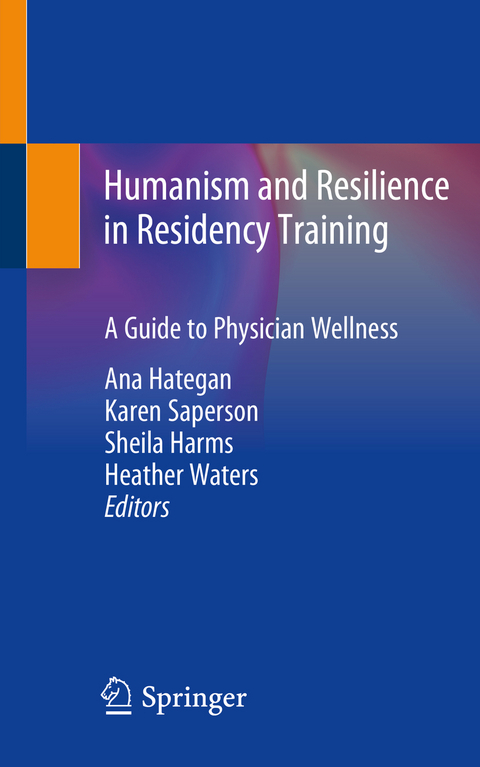
Humanism and Resilience in Residency Training
Springer International Publishing (Verlag)
978-3-030-45626-9 (ISBN)
This book aims to help identify pre-existing adaptive traits and positive perspectives in resident trainees, while challenging those that are less adaptive by building a formal curriculum for medical education that focuses on the humanistic aspects of medicine. Humanism in medicine is threatened by the false narrative that good physicians are superhumans who do not have their own needs. Written by experts in the field, this book is designed to be a concise, integrated guide to resilience during residency training. Through this guide, trainees learn (i) the usefulness of psychotherapeutic strategies for their own stress management and well-being; (ii) techniques and strategies that are useful in the practice of medicine; and (iii) to consider lifestyle modifications to improve physical and psychological health and well-being, through identification of positive and negative lifestyle factors influencing physicians' response to stress.
Since it is designed for busy trainees and physicians, this volume meticulously provides easy-to-use, evidence-based learning tools and therapeutic techniques, including case studies, skill-building exercises, self-test questionnaires, illustrations, useful practice-reminder tips, and other features.
Humanism and Resilience in Residency Training is an excellent resource for all medical trainees and professionals who need to incorporate humanism and resilience in their practice, both for accreditation requirements and for personal well-being. This includes medical students and residents, psychiatrists, addiction medicine specialists, family physicians, medical education professionals, hospitalists, nurses, and all healthcare providers
Ana Hategan, MD Associate Clinical Professor Department of Psychiatry and Behavioural Neurosciences McMaster University Hamilton, ON, Canada Karen Saperson, MBChB Professor Vice Chair Department of Psychiatry and Behavioural Neurosciences McMaster University Hamilton, ON, Canada Sheila Harms, MD Associate Professor Associate Chair, Education Department of Psychiatry and Behavioural Neurosciences McMaster University Hamilton, ON, Canada Heather Waters, MD Associate Professor Hamilton Site Director, Postgraduate Education Department of Family Medicine McMaster University Hamilton, ON, Canada
Recognizing a stressful event.- Recognizing the toll stress takes on your body.- Eliciting the steps for the relaxation response.- Recognizing what core beliefs keep individuals in the stress response, which impedes effective coping with stress.- Cognitive and mindfulness conceptualization.- Coping strategies and behavioural experiments.- Recognizing compassion fatigue, vicarious trauma, and burnout.- Facilitating completion of the action plan.- Reviewing the action plan and its effectiveness after a set time period.- Coping with burnout.- Pushing back: recognizing and advocating for systemic change.
| Erscheinungsdatum | 29.06.2020 |
|---|---|
| Zusatzinfo | XXIV, 613 p. 95 illus., 94 illus. in color. |
| Verlagsort | Cham |
| Sprache | englisch |
| Maße | 127 x 203 mm |
| Gewicht | 840 g |
| Themenwelt | Geisteswissenschaften ► Psychologie ► Klinische Psychologie |
| Medizin / Pharmazie ► Medizinische Fachgebiete ► Psychiatrie / Psychotherapie | |
| Schlagworte | Advocating for physician wellbeing • Mindfulness and the physician in training • Physician wellbeing and structural competency • Reappraisal and coping for physicians • Social connectedness in medical training • Sustainable medical education |
| ISBN-10 | 3-030-45626-9 / 3030456269 |
| ISBN-13 | 978-3-030-45626-9 / 9783030456269 |
| Zustand | Neuware |
| Haben Sie eine Frage zum Produkt? |
aus dem Bereich


